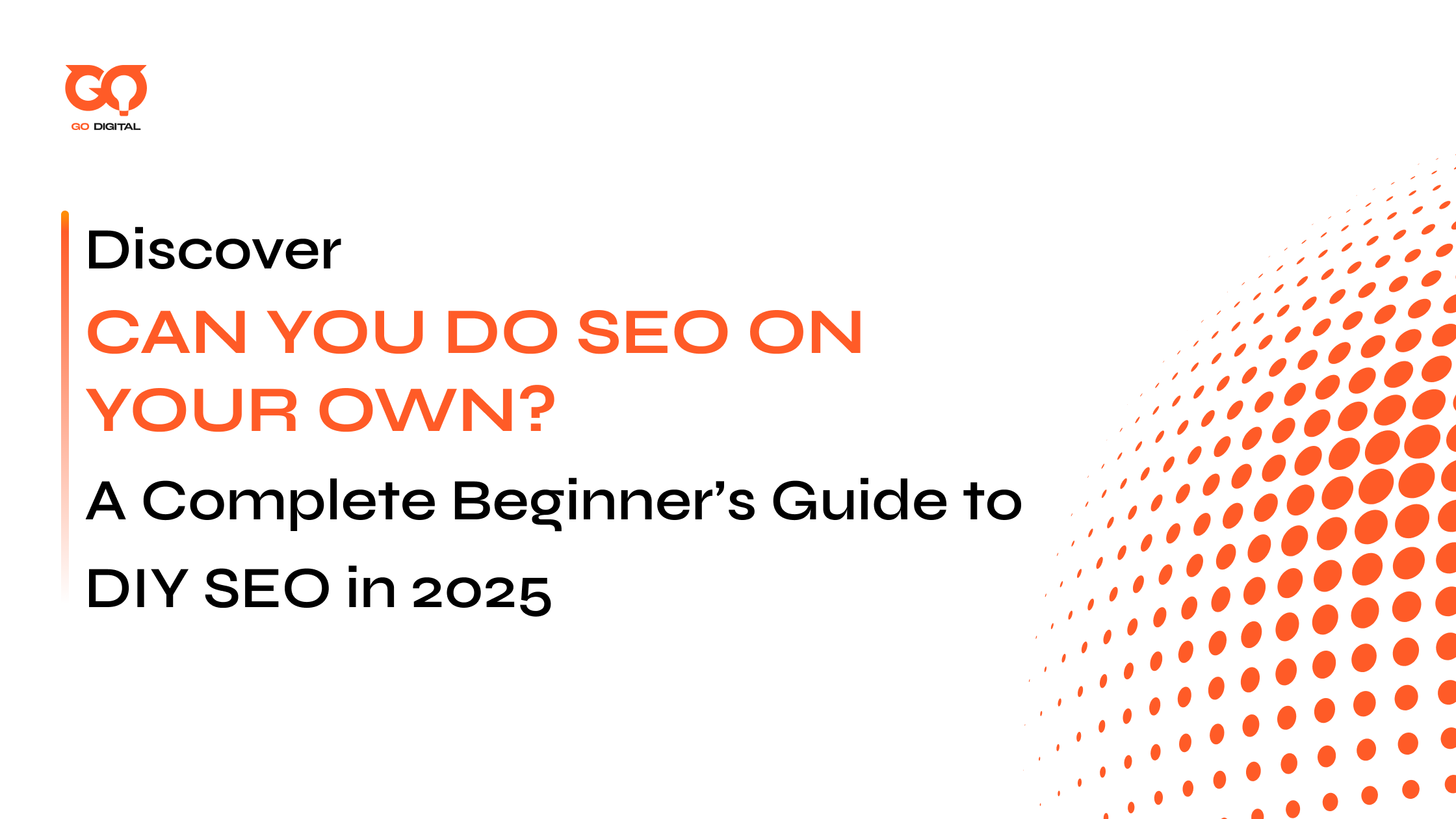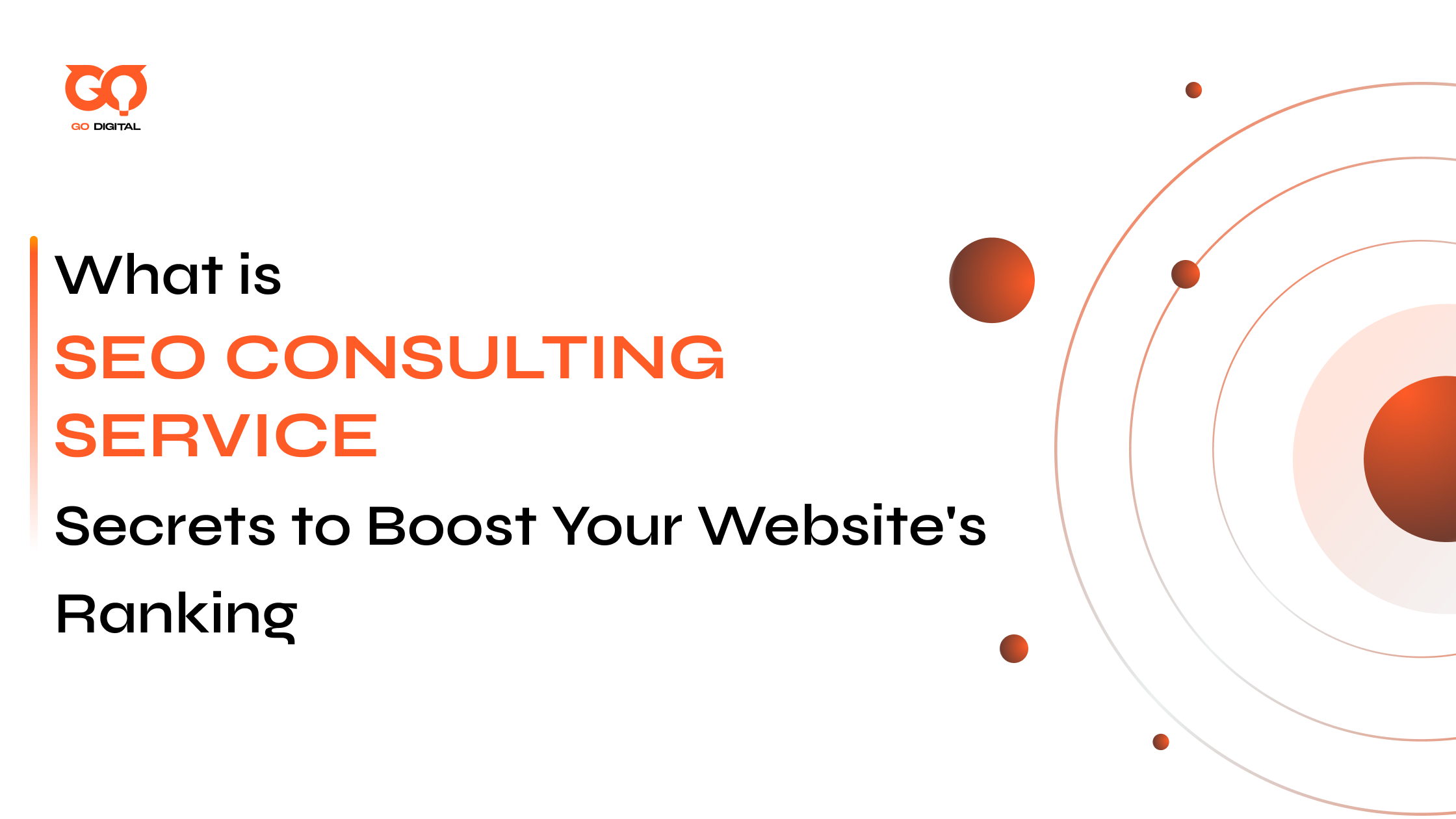Have you ever wondered if you can manage SEO without hiring an expert? The truth is, you absolutely can. With the right mindset, tools, and consistency, learning SEO yourself is not only possible but also rewarding.
Let’s figure out the answer for “can you do SEO on your own” and explore how far you can go with DIY SEO and what to expect along the way.
Key takeaways:
|
Can You Do SEO on Your Own? Pros and Cons of DIY SEO
Many business owners and content creators ask this question before hiring an agency and it’s a smart one to ask. Search engine optimization (SEO) is a long-term investment, and doing it yourself can save money while helping you understand how your website performs.

Doing SEO on your own helps save costs but requires time and consistent effort
However, it’s also a time investment that requires patience and learning. Here’s a quick breakdown of what makes DIY SEO both exciting and challenging:
|
Pros |
Cons |
|
Cost-effective: You save money by not hiring agencies or consultants. |
Time-consuming: SEO takes months of research, testing, and refining. |
|
Full control: You decide every strategy, keyword, and optimization step. |
Learning curve: It requires understanding technical, on-page, and off-page concepts. |
|
Hands-on experience: You gain valuable marketing and analytics skills. |
Risk of mistakes: Poor optimization or black-hat tactics can hurt rankings. |
| Flexible pace: You can experiment and learn at your own speed. | Limited access to premium tools: Professionals often have paid resources that improve accuracy. |
In short, you can do SEO yourself if you’re ready to learn, test, and stay consistent. But if time is tight or results are critical, expert help can make a big difference.
Step-by-Step DIY SEO Tasks
Doing SEO on your own feels easier when you break it down into steps. Here’s a simple beginner SEO guide you can follow from start to finish.
Keyword Research
Keyword research is the foundation of every SEO strategy. It tells you what your audience wants and how they search online.
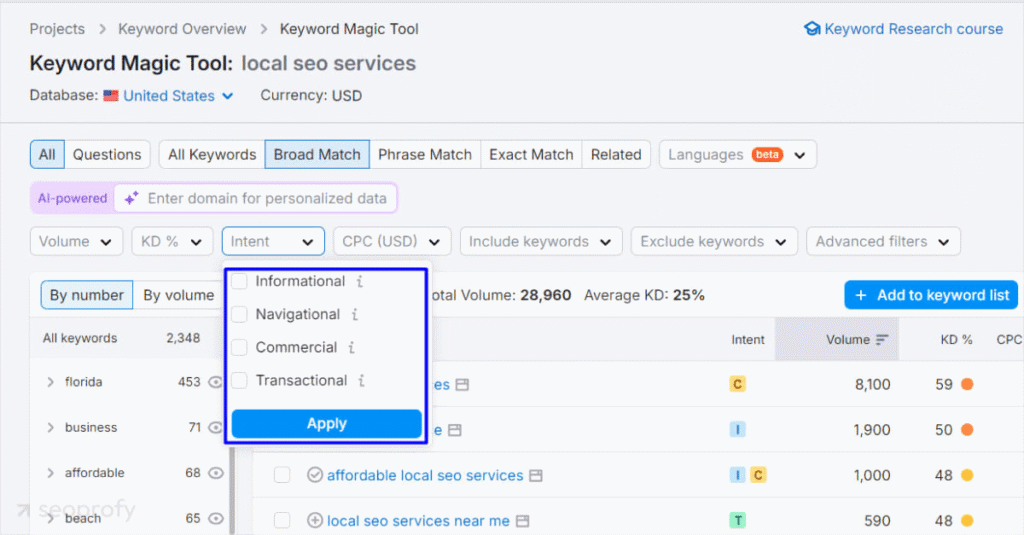
Choosing relevant keywords with clear intent is the foundation of good SEO
Here’s how I usually start:
- Find relevant topics that match your niche or products.
- Use free tools like Google Keyword Planner or Keyword Surfer, and paid ones like Ahrefs or Semrush.
- Look for keywords with moderate competition but high traffic or conversion potential.
Focus on long-tail keywords, for example, instead of targeting “SEO,” go for “DIY SEO tips for beginners.” They’re easier to rank and more specific to your audience.
When you ask yourself can you do SEO on your own, keyword research is the first place to start. It’s a skill that grows over time – the more you practice, the better you understand user intent.
Pro Tip: Focus on keywords that balance search volume with intent. Ranking for 500 highly relevant searches can outperform 5,000 irrelevant ones.
Writing SEO-Friendly Content
SEO-friendly content isn’t about stuffing keywords, it’s about answering questions better than anyone else.

Writing good SEO content is the key to gaining more traffic
Your content should serve readers first, not algorithms. The key is balance, writing naturally while optimizing smartly.
To create SEO-friendly content:
- Address your reader’s main question clearly.
- Use your keyword naturally in the title, intro, and a few subheadings.
- Keep paragraphs short and readable.
- Add visuals like images, infographics, or short videos to improve engagement.
If you write for humans, Google will reward you. Always focus on providing value rather than keyword stuffing.
On-Page Optimization
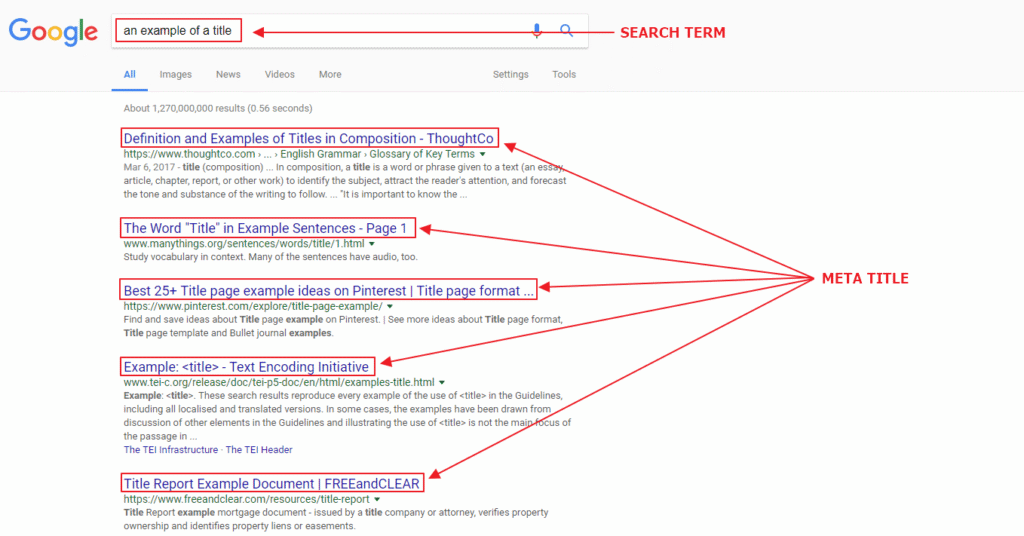
Optimizing titles, meta descriptions, and URLs improves site visibility
Once you’ve written your content, it’s time to make it search-engine friendly. Here’s a quick checklist:
- Title tags: Use your primary keyword close to the beginning.
- Meta descriptions: Summarize the content in 150–160 characters with a call-to-action.
- Headings (H1, H2, H3): Structure your content clearly for readers and search engines.
- URL structure: Keep URLs short, descriptive, and keyword-rich.
- Alt text: Describe images to improve accessibility and SEO.
- Page speed: Use tools like PageSpeed Insights to identify issues slowing your site down.
Even small changes, like rewriting meta descriptions or fixing slow pages can make a noticeable difference. For a deeper understanding of how to build an effective internal linking strategy, check out this detailed guide on internal and external link
Refreshing or Deleting Existing Content
Sometimes, improving what you already have works better than creating something new.
Go through your older posts every few months:
- Update outdated information, links, or data.
- Add new keywords and better visuals.
- Rewrite titles or intros for better click-through rates.
- Merge overlapping posts and delete low-value ones.
Refreshing old content keeps your site fresh in Google’s eyes and it often brings quick ranking boosts.
Improving Off-Page SEO Through Link Building
Besides on-page tactics, improving off-page SEO by earning quality backlinks is essential to boost credibility and rankings
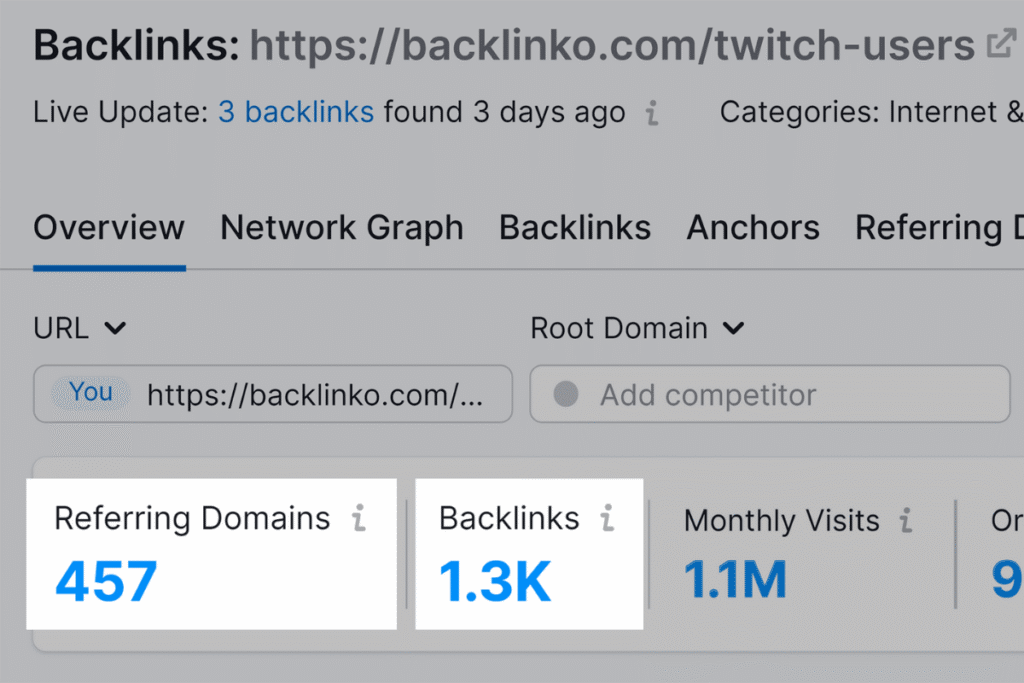
How backlinks from trusted websites increase domain authority
Easy ways to build backlinks include:
- Writing guest posts on industry blogs.
- Using HARO (Help a Reporter Out) to get quoted in the media.
- Networking with site owners and collaborating on content.
- Sharing useful insights or data people naturally want to link to.
Avoid buying links or joining link schemes. Google’s penalties can be harsh and recovery takes months. Focus on earning links through value, not shortcuts.
Assessing and Improving Technical SEO Basics
Technical SEO ensures your website runs smoothly behind the scenes. Even if you’re not a developer, you can handle basic fixes.
Here’s what to check:
- Page speed: Run Google PageSpeed Insights and fix slow-loading pages.
- Mobile optimization: Make sure your site looks good on phones and tablets.
- Security: Use HTTPS with an SSL certificate.
- Crawlability: Submit your sitemap and review your robots.txt file.
- Broken links: Find and fix them using tools like Screaming Frog or Ahrefs.
These small tweaks help search engines crawl and index your pages efficiently.
Monitoring SEO Performance
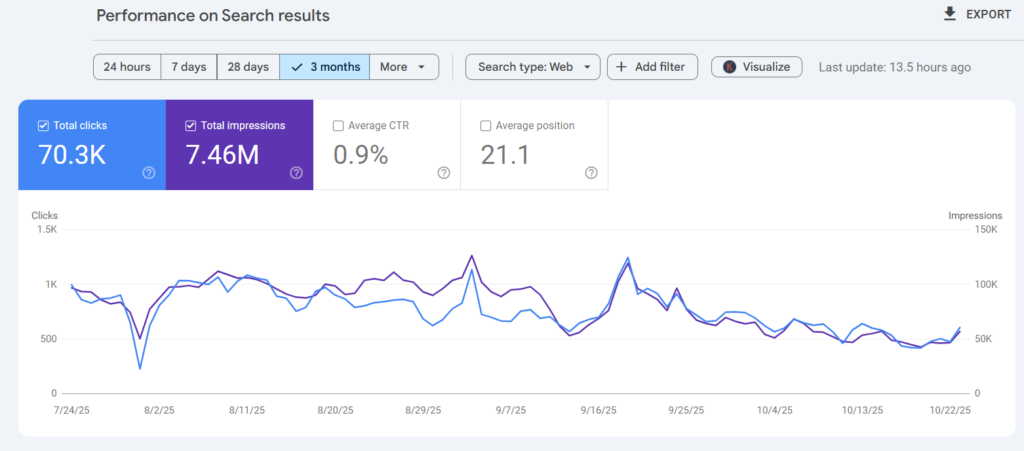
SEO metrics including traffic growth and keyword rankings
Once your optimizations are in place, it’s time to measure what’s working.
Track results using Google Analytics and Google Search Console. These tools show which keywords bring traffic, which pages perform best, and where users drop off.
Review data monthly and adjust your strategy. Keep an eye on metrics like:
- Organic traffic growth
- Bounce rate
- Average session duration
- Keyword ranking positions
Review these numbers monthly, and adjust your strategy accordingly. SEO is a long game; staying consistent is what brings lasting results.
When to Outsource SEO to Experts
Doing SEO on your own is rewarding, but there comes a point where outside help can speed things up.

Partnering with professionals can accelerate SEO growth and save time
You might consider outsourcing when:
- When you lack time: If your core business demands all your attention, delegating SEO is the optimal solution.
- When the competition is too fierce: If you are in a highly competitive niche that requires high-authority backlinks and complex strategies.
- When facing major technical issues: For example, post-website migration problems or a Google algorithm penalty.
- When you seek rapid, aggressive growth: Experts can provide a faster and more sustainable growth trajectory.
Professional agencies often bring specialized tools, broader experience, and deeper insight into what’s working right now.
If your business is ready to grow but you’re unsure where to start, Golden Owl Digital is a great partner to consider. Their team specializes in custom SEO strategies, data-driven insights, and sustainable growth for businesses of all sizes.
Whether you need a full-site audit or hands-on campaign management, they’ll help you transform your website into a real traffic magnet.
What Tasks Should You Outsource to SEO Experts
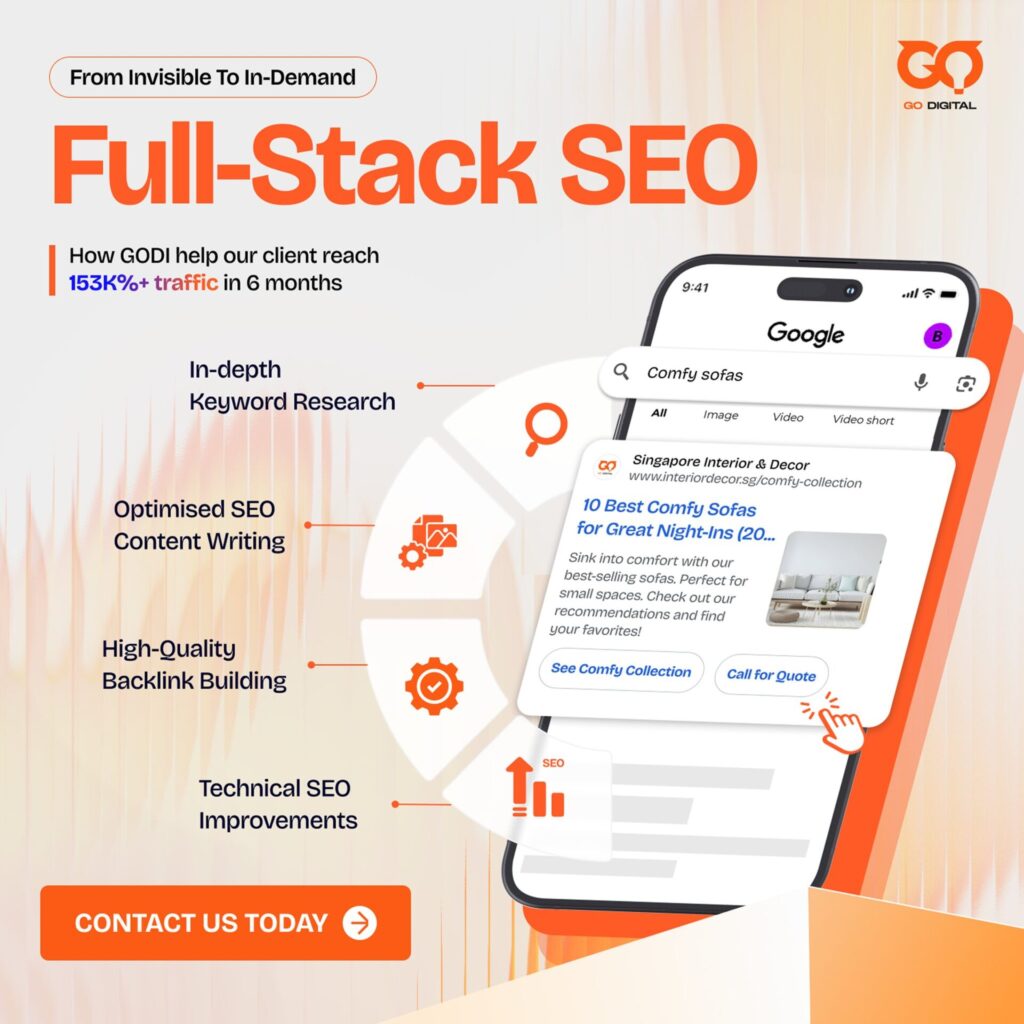
Some advanced SEO tasks are best handled by specialists for better results
Not every SEO task needs outsourcing, but some are best handled by specialists.
These include:
- Technical SEO audits: Advanced tasks like SEO technical audits are crucial for uncovering technical issues that could impact your site’s performance
- Core Web Vitals optimization: Improving site speed and UX performance.
- Schema markup implementation: Adding structured data for better visibility.
- High-quality link building: Outreach and relationship-based backlink acquisition.
- Competitor and keyword analysis: Building long-term SEO strategies.
- Algorithm update management: Adjusting quickly to Google’s changes.
Outsourcing these lets you focus on your content and business while experts handle the technical side. To ensure your SEO efforts are on the right track, conducting an in-depth SEO audit can help identify and fix hidden issues
Essential SEO Tools for DIY Beginners
You don’t need expensive software to start, many powerful tools are free or freemium.
| Category | Tool | Notes |
| Analytics | Google Analytics, Google Search Console | Track performance and keyword data |
| Keyword Research | Ahrefs, Semrush, Keyword Surfer | Find keyword ideas and difficulty levels |
| On-Page Optimization | Yoast SEO, Rank Math | Optimize content and meta tags |
| Content Planning | SurferSEO, Frase | Structure and analyze your content |
| Keyword Ideation | AnswerThePublic, Google Trends | Discover new search intents |
Start small, explore features, and upgrade later as your needs grow. Utilize the best SEO tools for small businesses to efficiently analyze and optimize your SEO efforts from the start
How to Monitor and Improve Your DIY SEO Results
Continuous tracking and adjustments are key to long-term SEO success
SEO is not a one-time project; it’s a routine. Here’s how to keep improving:
- Track monthly reports: measure traffic, keyword positions, and conversions.
- Compare your content with top-ranking pages to spot gaps.
- Experiment: test new keywords or content formats.
- Stay updated: follow Google Search Central, Moz, and industry blogs.
- Keep learning SEO without experts: the more you practice, the sharper your instincts become.
Over time, you’ll notice patterns, what works for your site, what doesn’t, and how small tweaks can lead to big growth.
Bottom Line
So, can you do SEO on your own? Definitely. You don’t need a full team, expensive tools, or deep technical knowledge to start. You just need curiosity, persistence, and a willingness to learn.
Start small. Research keywords, write great content, and keep improving your website one step at a time. Over time, your SEO efforts will compound and you’ll see your pages rise in search results.
But when you’re ready to scale or tackle complex challenges, remember Golden Owl Digital is here to help turn your DIY foundation into professional-grade results.

Jaden is an SEO Specialist at Golden Owl Digital. He helps brands rank higher with technical SEO and content that resonates

